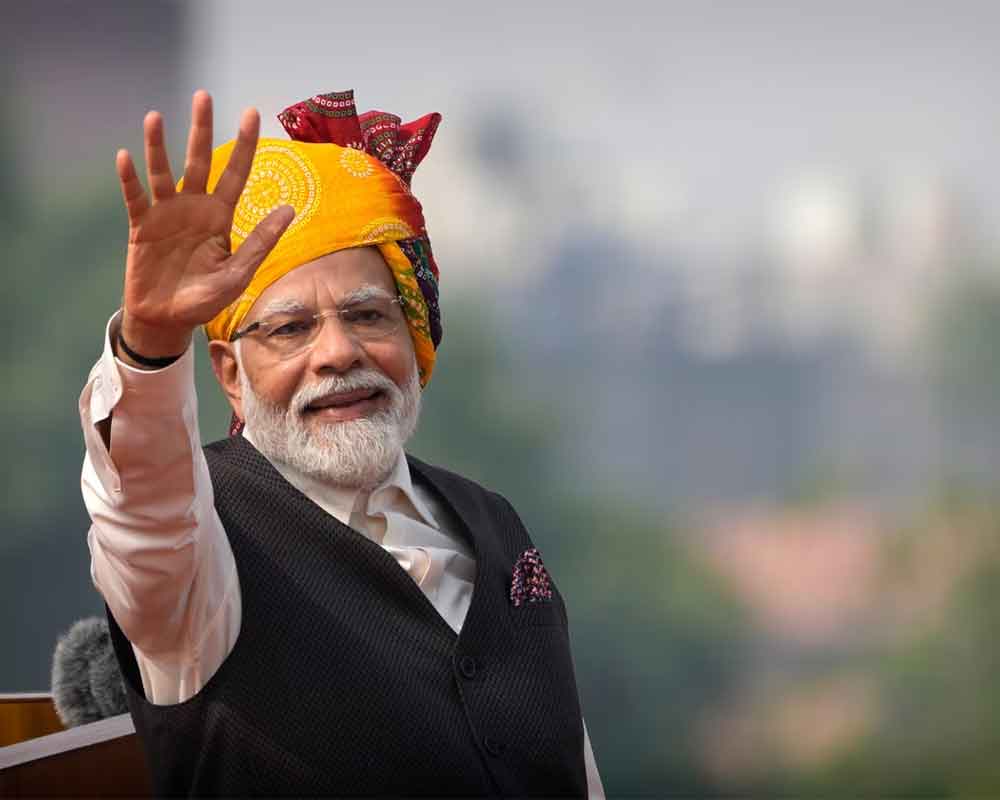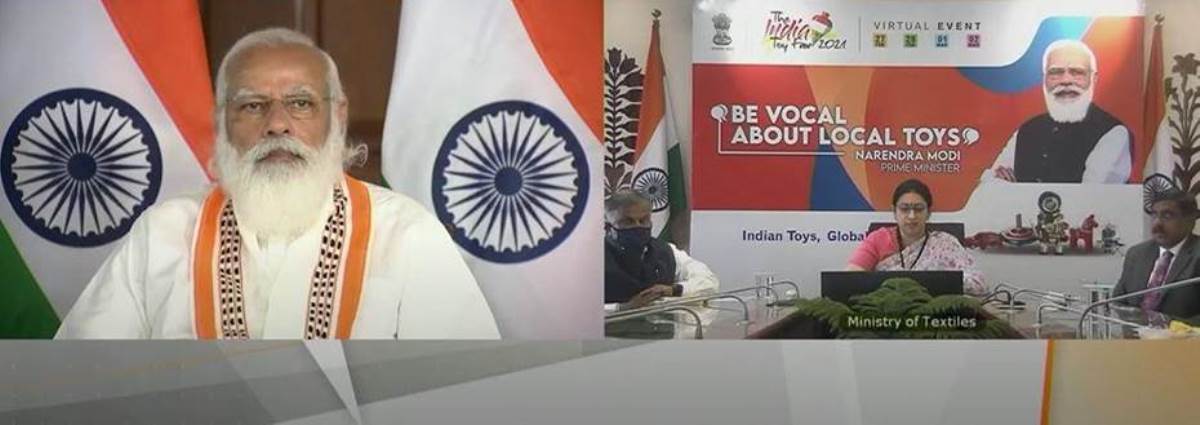Prime Minister Modi came up with Panchpran (five determinations) that the citizens should make
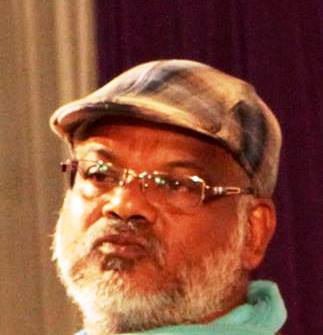 Dr. D.K. Giri I INFA Service
Dr. D.K. Giri I INFA Service
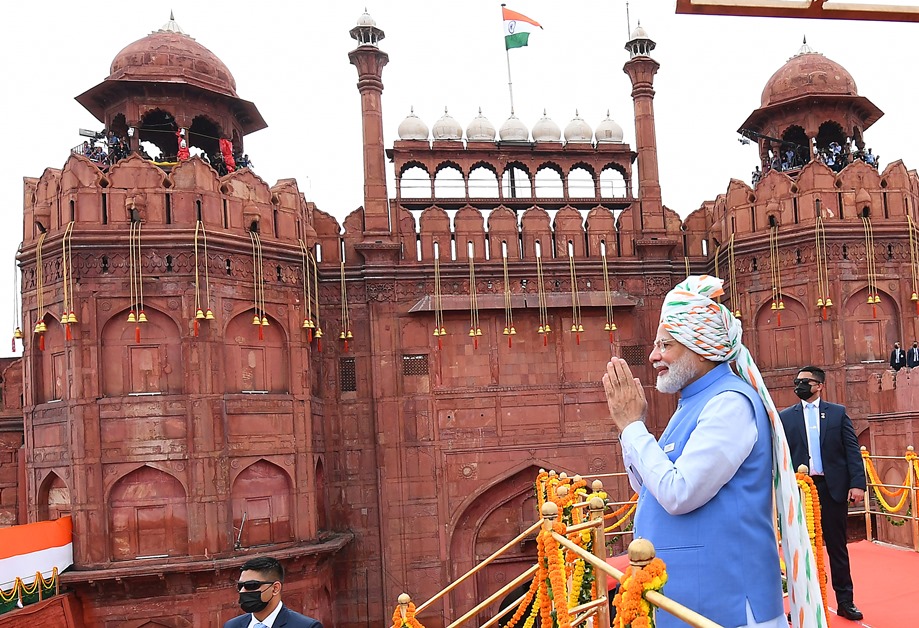
As usual, in his ninth address to the nation, Prime Minister Narendra Modi made a powerful speech on the 76th Independence Day. As a student of international politics, I was scanning the text, as reported in the media, to see if there was any allusion to India and the world or any development in international politics. To my surprise, there was nothing in particular that drew my attention except his commendatory reference to the Commonwealth Games.
The Prime Minister urged the people to support sports while praising India’s ‘stellar’ performance in the recently-concluded Commonwealth Games 2022. He said, “Our stellar performances at international sporting events are an example of India’s shining talent. We need to promote and support such talent.”
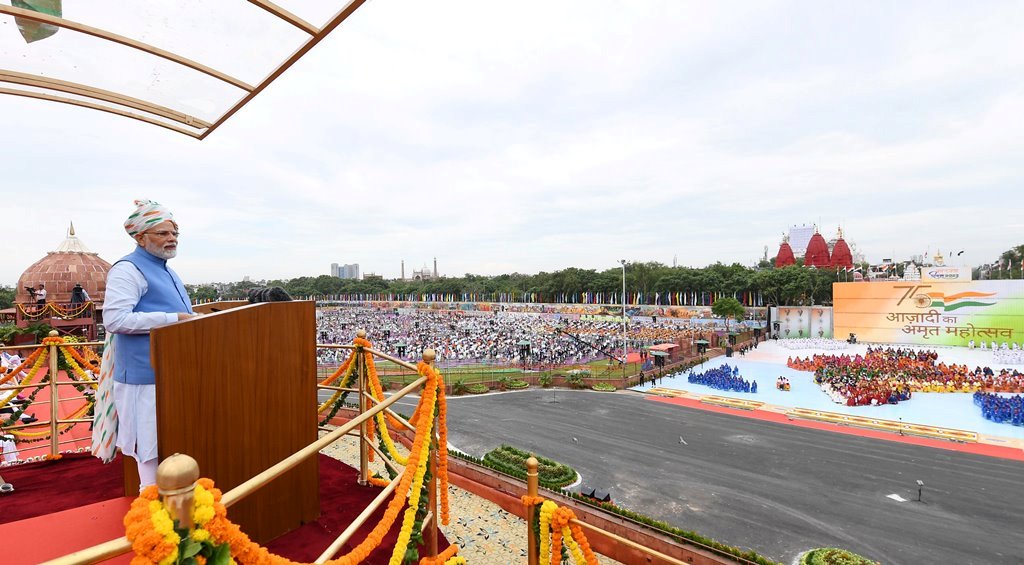
Acknowledging the accomplishment in the Commonwealth Games was right in order as sports adds to commitment, discipline, and unity among the sportsmen, which can be, by extension to the wider society, a contribution to nation building. Not only our sportspersons, but those who organise the sports events also deserve to be commended. In the recently-concluded world Chess championship held in Tamil Nadu, India got a worldwide appreciation for her warmth and hospitality. The Indian maxim, Atithi Devo Bhavo (a guest is akin to God) was evident in practice. Seventeen hundred and thirty seven chess players from 186 countries participated.
India is becoming a hub of world events in sports. Odisha hosted the world hockey tournament in 2018. The world championship in quite a few games will be hosted in India in the coming years. That is a good sign if we learn a few principles from sports in our public life. While there is a demand in some corners for conscription in the army in order to prepare the youth for nation building, encouraging them into games is a similar practice. Using the cricket terminology, ‘team India’, Modi called upon the collective spirit of 130 crores of “Team India”, to take the country forward and ensure that it is a developed nation in the next 25 years.
Back to the Independence Day speech of the Prime Minister, the omission of mention of India beyond the boundaries defies understanding of PMO’s thinking as India is said to be aspiring to be a Vishwa Guru (world leader). That said, whatever Modi said about our country and to the citizens could apply to any country in the world. On women, he urged the nation to take a pledge. “It’s important that in speech and conduct, we do nothing that lowers the dignity of women”. Underlining the importance of the native language, the Prime Minister reminded the nation, “Sometimes our talent is restricted by language barriers. This is an example of Imperialism. When we are connected to our roots, then only can we fly high; and when we fly high, we will provide solutions to the entire world”.
Modi highlighted the importance of green jobs which sustain the environment. He said there are multiple employment opportunities that can be opened with the creation of Green Jobs. He enlarged the national slogan given by Lal Bahadur Shastri and later improved by Atal Behari Vajpayee, “Jai Jawan, Jai Kisaan, Jai Vigyaan, Jai Anusandhan”. The second last one was added by Vajpayee and the last one was by Prime Minister Modi which emphasises the quest for new things – research and innovation.
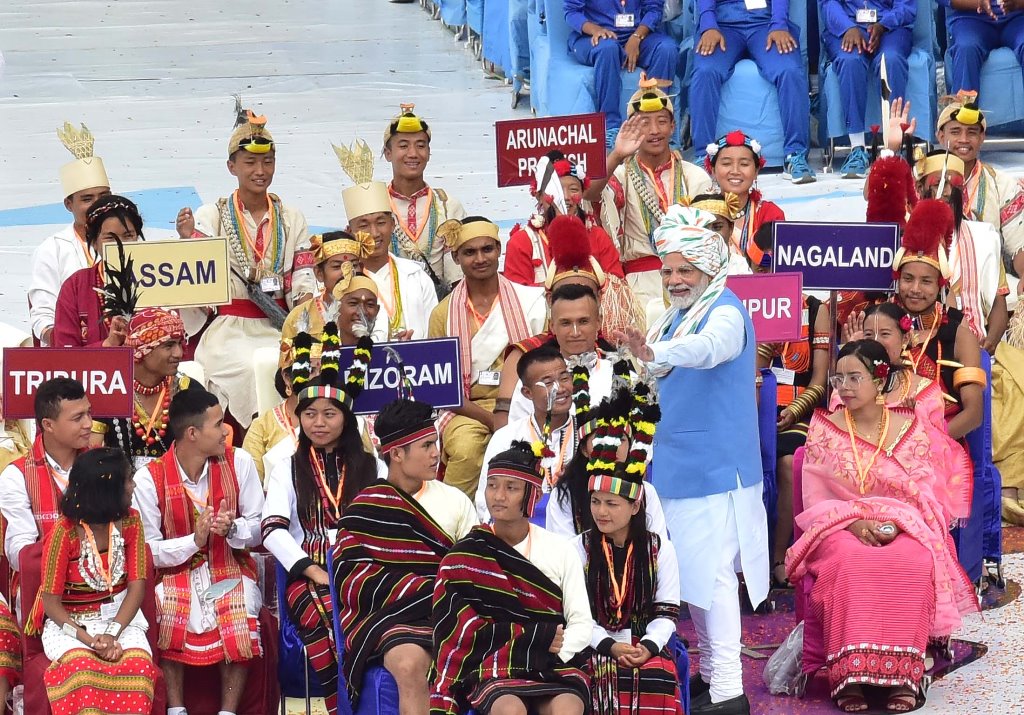
The country is fast going the digital way. The Prime Minister made the country aware of the digital revolution silently underway. He said, “today, we are seeing the Digital India initiative, start-ups grow in the country, and a lot of talent is coming from Tier 2 & 3 cities. We have to believe in our abilities.’ He added, “techade’ is here as the government is focusing on technologies such as 5G, semiconductor manufacturing and optical fiber cables. These technologies, Modi said, will bring about a revolution at the grassroots level.
Once again, true to his innovative style, Modi enunciated the five principles which the citizens should embrace in building the country. Before we engage with these principles, one is reminded of Panchsheel – five principles that constituted the foundation for the India-China relationship. It is worth remembering that those principles enshrined in the Panchsheel Agreement became a part of similar other multilateral agreements for world politics. The five principles were: mutual respect for territorial integrity and sovereignty, mutual non-aggression, mutual non-interference in internal affairs, equality and co-operation for mutual benefit, and peaceful co-existence.
In 1955, the Bandung Conference of 29 Afro-Asian countries reflected or rather incorporated the five principles of Panchsheel. The result of the 1955 Asian-African Conference was known as the Ten Principles of Bandung, a political statement containing the basic principles in the efforts to promote peace and cooperation in the world.
The following were the Ten Principles of Bandung: Respect for fundamental human rights and for the purposes and the principles of the Charter of the United Nations; Respect for the sovereignty and territorial integrity of all nations; Recognition of the equality of all races and of the equality of all nations large and small; Abstention from intervention or interference in the internal affairs of another country; Respect for the right of each nation to defend itself singly or collectively, in conformity with the Charter of the United Nations; Abstention from the use of arrangements of collective defence to serve the particular interests of any of the big powers, abstention by any country from exerting pressures on other countries; Refraining from acts or threats of aggression or the use of force against the territorial integrity or political independence of any country; Settlement of all international disputes by peaceful means, such as negotiation, conciliation, arbitration or judicial settlement as well as other peaceful means of the parties’ own choice, in conformity with the Charter of the UN; Promotion of mutual interests and cooperation, and Respect for justice and international obligation.
Ten Principles of Bandung
The universal relevance of Panchsheel was also taken into consideration when its principles were incorporated in a resolution on peaceful coexistence presented by India, Yugoslavia & Sweden, and adopted on December 11, 1957, by the United Nations General Assembly (UNGA). The Resolution was, Recommendations Concerning International Respect for the Right of Peoples and Nations to Self-Determination (1957) UNGA 129; A/RES/1188 (XII) (11 December 1957).
Sadly, the spirit of Panchsheel that manifested in a few international resolutions is missing these days. International politics is increasingly being dominated by the concept of national interest defined in their respective ways by big powers. That should change. It should return to rule-based order and to international transactions based on shared principles.
Interestingly, Prime Minister Modi came up with Panchpran (five determinations) that the citizens should make. These determinations listed are; first, to move forward with bigger resolves and resolve of developed India; second, to erase all traces of servitude; third, be proud of our legacy; fourth, the strength of unity and fifth, duties of citizens which includes the Prime Minister and Chief Ministers. Modi asked, “In coming years, we’ve to focus on the foregoing five determinations which he called ‘Panchpran’. Let us take that pledge.” Shall we? —INFA
(Dr. D.K. Giri is a Prof. International Relations, JIMMC. Opinions expressed here are personal).
Advertisements | 5E For Success

KRC Career Membership Program is the first step toward an evolved career-building support system powered by KRC Foundation. Ideal for students and job seekers. Mail resume to- 5eforsuccess@gmail.com


